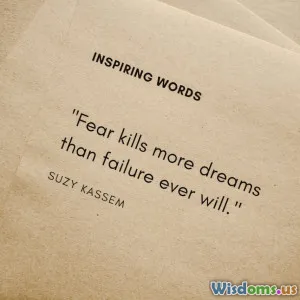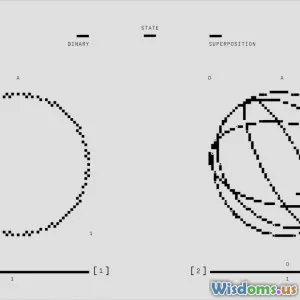
Connecting Spirituality and Rational Thought
8 min read Explore how spirituality and rational thought intersect, enriching understanding and daily life with harmony between belief and logic. (0 Reviews)
Connecting Spirituality and Rational Thought: Bridging Belief and Logic
Introduction
In an age characterized by rapid scientific advancement and a quest for empirical certainty, spirituality often seems like a distant realm of faith, intuition, and personal beliefs. Conversely, rational thought is commonly viewed as the domain of logic, evidence, and critical analysis. But what if these two are not at odds? What if connecting spirituality with rational thought creates a powerful synergy that fosters deeper understanding of ourselves and the world?
This article dives into the rich interface between spirituality and rational thought, exploring how they complement each other rather than conflict, offering a holistic approach to human experience.
Defining Spirituality and Rational Thought
Spirituality broadly encompasses the search for meaning, purpose, and connection beyond the material world. It often involves experiences described as transcendent or sacred and can include religious faith, meditation, awe of nature, or a personal sense of universal connectedness.
Rational thought involves logical reasoning, critical analysis, and reliance on empirical evidence. It's the foundation of scientific method and philosophical inquiry, emphasizing clarity, consistency, and sound argumentation.
While spirituality often appeals to subjective experience, and rational thought to objective analysis, the two address complementary dimensions of human existence.
The Historical Perspective: Philosophy at the Crossroads
Philosophers have long wrestled with the interplay between faith and reason. The medieval thinker Thomas Aquinas argued that rational thought could reinforce spiritual truths through natural theology, establishing God's existence via reason.
In contrast, Enlightenment figures sometimes posited rationalism as a corrective to superstition and dogma prevalent in spiritual traditions, asserting that reason alone should guide human understanding.
More recently, philosophers like William James acknowledged spirituality’s phenomenological reality while recognizing the importance of empirical scrutiny, articulating an inclusive vision that respects both intellect and spirit.
These historical perspectives reveal the ongoing dialogue and eventual convergence between the domains.
Brain Science and Spiritual Experiences
Modern neuroscience provides fascinating insights into how spirituality and cognition connect. Functional MRI studies show that meditation and prayer activate brain regions linked to attention, emotional regulation, and self-awareness.
For instance, neuroscientist Andrew Newberg's research suggests that spiritual experiences reflect complex neural networks rather than purely mystical phenomena, making them accessible to objective study without stripping away their subjective depth.
Moreover, rational analysis of such phenomena enables practitioners to refine spiritual practices for mental health benefits, such as reduced stress, improved focus, and greater emotional resilience—a tangible payoff from integrating spirituality and reason.
Rationality Enriching Spirituality
Rational thought can deepen spirituality by encouraging questioning and reflection rather than blind acceptance. This mindset fosters an authentic spirituality based on personal conviction and evidence-informed practices.
Consider mindfulness meditation: though often rooted in spiritual tradition, its widespread acceptance in psychology is due to rigorous scientific evaluation proving its efficacy in managing anxiety and depression.
Similarly, spiritual philosophies that engage with morality, ethics, and social justice benefit when tested against logical consistency and real-world outcomes, making spiritual values actionable and credible.
Spirituality Informing Rational Thought
Conversely, spirituality can inspire rational inquiry by framing questions with broader meaning or guiding principles. For instance:
- Ethical frameworks: Spiritual beliefs can motivate researchers and policymakers to prioritize human dignity, sustainability, and compassion.
- Intuition and creativity: Many scientific breakthroughs stem from moments of insight or intuition—qualities often nurtured by spiritual openness.
Inventor Nikola Tesla once said, “My brain is only a receiver... In the universe, there is a core from which we obtain knowledge, strength, and inspiration,” illustrating how a spiritual outlook can coexist with scientific pursuit.
This cross-pollination enriches rational paradigms with values and inspiration.
Real-World Applications and Case Studies
1. Integrative Medicine
The rise of integrative health programs combining evidence-based medicine with spiritual counseling highlights practical benefits. For example, cancer centers integrate meditation and prayer to improve patients’ psychological well-being, backed by documented reductions in pain and anxiety.
2. Environmental Ethics
Addressing climate change often requires both rational policy-making and a spiritual reawakening that reconnects humans with nature. Indigenous spiritualities emphasizing harmony with Earth influence conservation efforts globally.
3. Education
Educational models now explore incorporating mindfulness training alongside critical thinking skills, recognizing that both spiritual awareness and rational capacity promote holistic student development.
Overcoming Challenges and Misconceptions
Challenge: It is a common misconception that spirituality is irrational or that rationality suppresses spiritual experience.
Solution: Embracing intellectual humility fosters openness to multiple ways of knowing. Philosopher Ken Wilber’s integral theory exemplifies such integration by mapping human experience across both rational and transpersonal dimensions.
Challenge: Confirmation bias can distort the genuine dialogue between spirituality and reason.
Solution: Commitment to self-awareness and critical reflection ensures spiritual beliefs withstand rational scrutiny and remain meaningful and grounded.
Conclusion: Toward a Synergistic Future
The perceived chasm between spirituality and rational thought is shrinking as interdisciplinary research and philosophical inquiry reveal their complementary nature. Connecting them enriches human experience with authenticity, clarity, and purpose.
By engaging both heart and mind, belief and evidence, we advance not only personal growth but also societal well-being. In a complex world, harnessing the dialogue between spirituality and rational thought offers a path to wisdom that honors the multidimensional nature of existence.
As we move forward, cultivating curiosity, openness, and respect for diverse ways of knowing will be crucial in realizing the full potential of this harmonious convergence.
References
- James, William. The Varieties of Religious Experience. 1902.
- Newberg, Andrew. How God Changes Your Brain. 2010.
- Wilber, Ken. A Theory of Everything. 2000.
- Benson, Herbert. The Relaxation Response. 1975.
Embrace both the spiritual and the rational—two forces shaping a richer, wiser human story.
Rate the Post
User Reviews
Popular Posts


















